- All
- [Open Science Policies]
- Auvergne-Rhône-Alpes
- Bourgogne-Franche-Comté
- Brittany
- Centre-Val de Loire
- Corsica
- DROM-COM
- Grand Est
- Hauts-de-France
- Île-de-France
- Normandy
- Nouvelle-Aquitaine
- Occitania
- Pays de la Loire
- Provence-Alpes-Côte D'Azur
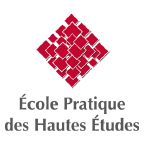
École Pratique des Hautes Études
The École Pratique des Hautes Études – PSL (EPHE – PSL), established in the Sorbonne in 1868, is acknowledged as one of France’s ‘grands établissements’ where research is undertaken in Life and Earth Sciences, Historical and Philological Sciences, and Religious Sciences.
Located in the heart of Paris, PSL inspires dialog among and between all areas of knowledge, innovation, and creativity. Ranked among the world’s top 50 universities, it draws directly from research to train researchers, artists, engineers, entrepreneurs, and managers who are aware of their social responsibility, both individual and collective.
The EPHE focuses on unique fields of knowledge. Lectures and other learning strategies, offered by over 260 faculty, provide an exceptional opportunity for immediate immersion into research as practiced in a myriad of fields including languages and religions of Pre-Islamic Central Asia, the major monotheistic faiths, Chinese archaeology, Hebrew palaeography, Greek dialectology and digital humanities in the sphere of Social Sciences and Humanities; coral reef biodiversity, neurosciences and cognitive science, cellular environment and regulation in the Life and Earth Sciences sector… as well as transdisciplinary issues that bridge these key areas of knowledge.
Remaining true to its initial mission, the EPHE continues to develop research skills through immersion in research practice and tailors its programs to today’s ever-changing global scientific landscape: its faculty members and its doctoral students are part of an intricate international network; many of its teams have contracts with the CNRS and other renowned organizations; it is part of PSL (Paris Sciences et Lettres) University where it works hand-in-hand with other prestigious establishments; it is one of the founders of and is actively involved in the Campus Condorcet project – the Cité des Humanités et Sciences Sociales (Social Sciences and Humanities Campus), which is currently under construction in the Paris suburb of Aubervilliers.
Ever mindful of the societal challenges of the scientific issues that it studies, the EPHE comprises four institutes which provide courses and which also have a primary role as an observatory: the European Institute of Religious Sciences, the Pacific Coral Reef Institute and the Transdisciplinary Institute for the Study of Aging, ILARA, the Institute for Linguistic Heritage and Diversity.
Read more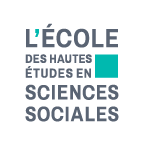
EHESS
The École des Hautes Études en Sciences Sociales (EHESS) produces and disseminates knowledge about human societies by organising a permanent interdisciplinary dialogue between history, sociology, anthropology, economics, philosophy, geography, literary studies, psychology and cognitive sciences.
Its 3,000 students pursue careers in research, teaching, journalism, public action, communication, publishing, etc.
Read more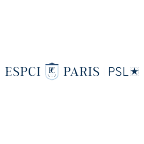
ESPCI Paris
ESPCI Paris – PSL is a major institution of higher education (a French “Grande École d’ingénieurs”), an internationally renowned research center, and a fertile ground of innovation for industry.
Founded by the City of Paris in 1882, for over a century the School has attracted leading scientific innovators like Nobel Prize laureates Pierre and Marie Curie, Paul Langevin, Frédéric Joliot-Curie, Pierre-Gilles de Gennes, and Georges Charpak, who continue to contribute to the institution’s international reputation.
The School’s culture of excellence remains as vibrant as ever. Fully 60% of graduates go on to complete a thesis and earn their PhD. The School’s teaching faculty and researchers are building tomorrow’s knowledge base, publishing an article a day in top international scientific journals ; inventing the industry of the future, filing for a patent every single week.
A model of excellence and an illustration of the “French exception”, ESPCI Paris is a component school of PSL University and a founding member of ParisTech, the Paris Institute of Science and Technology.
Read more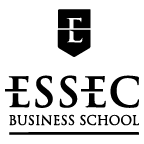
ESSEC Business School
A pioneer of business-related learning since 1907, ESSEC’s mission is to respond to the challenges of the future. In an interconnected, technological, and uncertain world, where the tasks are increasingly complex, ESSEC offers a unique pedagogical approach. This approach is founded on the creation and dissemination of cutting-edge knowledge, a blend of academic learning and practical experience, and a multicultural openness and dialogue.
Read more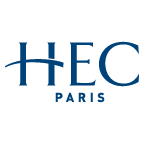
HEC Paris
One of the world’s best business schools, HEC Paris is a leader in research and education in management sciences. It offers a unique portfolio of programs designed for a carefully selected student body.
Read more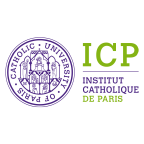
ICP (Catholic University of Paris)
Founded in 1875, the Catholic University of Paris (Institut Catholique de Paris – ICP) is the inheritor of the Medieval Liberal Arts Colleges and lies in the tradition of the Sorbonne, the oldest academic institution in France. ICP is renowned for its excellence in core academic fields such as Theology, Philosophy and Canon Law that serve as a basis for the development of Humanities and Social sciences, where Education, Ethics and Anthropology are well represented. As a non-for-profit Association pursuant to French Law of 1901, recognised as Promoting the Public interest, its unique Research Unit “Religion, Culture and Society” is fully recognised by the French Ministry of Higher Education and Research.
Inspired by a long Christian and Humanistic tradition, ICP values open-mindedness and dialogue across borders, as suggested by the University Motto: “An Open Mind to the World”. ICP welcomes all students and academics, whatever their nationality, culture, language and religion and puts an emphasison individual pedagogical guidance. Centrally located in the 6th district of Paris, between the Latin Quarter and Saint-Germain-des-Prés, ICP is built on the site of an old Carmelite convent from the 17th century. ICP is a place of serenity and history, a unique and positive environment conducive to study, research and campus life.
ICP belongs to the European Higher Education Area and delivers ECTS (European Credits Transfer System). ICP is also a major actor of the, global Catholic network of higher education. ICP prepares for obtaining State Degrees recognized at National and European level (Bachelor, Master and Doctorate Degrees), Canonical Diplomas as well as its own Diplomas. Part of ICP, the ILCF (Institute of French Language and Culture) offers recognised certifications. Faculties of ICP deliver Bachelor (3 years), Master (5 years) and Doctorate Degrees in three main complementary teaching and research areas :
- Humanities : Philosophy, French and International Literature, Past and Present Languages, European languages, Ancient Oriental Languages, History, History of Art, French as a Foreign Language, French Culture, Politics…
- Law, Social sciences and economics : Law, Economics, Sociology, Human Resources, Mediation and Negotiation…
- Theology, Religious Sciences & Canon Law : Canon Law, Moral Theology, Pastoral Catechesis, Theology of Arts, Liturgy, Ecumenical and Interreligious Studies, Exegesis, Christian Anthropology…
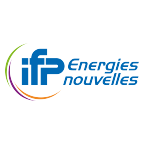
IFP Energies nouvelles
IFP Energies nouvelles (IFPEN) is a major research and training player in the fields of energy, transport and the environment. From research to industry, technological innovation is central to all its activities.
Its areas of expertise include:
- climate, environment and circular economy,
- renewable energies,
- sustainable mobility,
- responsible oil and gas.
As part of the public-interest mission with which it has been tasked by the public authorities, IFPEN focuses on:
- providing solutions to take up the challenges facing society in terms of energy and the climate, promoting the transition towards sustainable mobility and the emergence of a more diversified energy mix;
- creating wealth and jobs by supporting French and European economic activity, and the competitiveness of related industrial sectors.
An integral part of IFPEN, its graduate engineering school – IFP School – prepares future generations to take up these challenges.
IFPEN has proven expertise across the entire value chain, from fundamental research to innovation. It is funded both by a state budget and by resources provided by industrial partners. The latter account for over 50% of IFPEN’s total budget, a configuration that is unique in France.
The aim of IFPEN’s R&I programs is to overcome existing scientific and technological challenges in order to develop innovations that can be used by industry.
IFPEN’s fundamental research program aims to create a library of knowledge essential for the development of innovations.
The scientific expertise of IFPEN’s researchers is internationally recognized and they are regularly consulted by the public authorities to provide their insight in their specific fields to inform the decision-making process.
Read more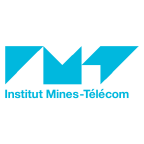
IMT (Institut Mines-Télécom)
The number one group of engineering and management graduate schools in France, IMT (Institut Mines-Télécom) is a public institution dedicated to higher education, research and innovation in engineering and digital technology. It provides the economy with 12.300 freshly-trained engineers, managers and doctors.
8 engineering and management graduate schools
IMT has also formed close ties with 12 partner institutions, known as affiliated schools.
4,100 degrees are awarded each year and 90 % of graduates go straight into permanent work contracts (figures excluding the affiliated schools).
IMT schools form a powerful group, complementing each other and working cohesively together. Their strength is founded on a shared vision to:
- train graduates for businesses,
- develop the economy and France’s territories,
- contribute to innovation and entrepreneurship.
These activities are rolled out in areas linked to the major digital, energy, industrial and educational transitions underway.
Partner-orientated research
The quality of IMT’s partner-orientated research is recognized by 2 Carnot Institute labels, (M.I.N.E.S and Carnot Télécom & société numérique) awarded in 2006 and renewed in 2011.
The research concerns projects that involve IMT research teams and its socioeconomic partners (businesses, associations, local authorities, etc.). This is a major focus of IMT’s Research and Innovation strategy.
Partner-orientated research takes many forms:
- Contractual research
- Collaborative research
- Technology transfer
HAL portal
Open Science Policy
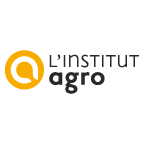
L’Institut Agro
L’Institut Agro is a higher education and research institution specialised in agronomy, food sciences, environmental sciences and landscape studies. It carries out its activities in close association with research organisations, universities, other grandes écoles and both private and public socio-economic actors, in Fance and worldwide.
Read more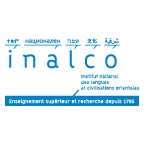
Inalco
lnalco began teaching languages and culture studies in 1795. Ever since, the Institute has cultivated its role in understanding a living heritage outside of any Western references. Inalco promotes the discovery of the world as it is, in all its wealth and diversity, with a desire to become immersed in another way of thinking. Through the quality of our courses and research, Inalco strives to disseminate the knowledge and skills essential for people to understand and engage meaningfully with each other, culturally and socially as well as professionally. Inalco’s humanist values are evident in all its teaching choices, research policy, and cultural programming.
Over the centuries, Inalco has become a unique world institution, teaching languages from Central Europe to Africa and from Asia to America via Oceania. There is no other institution in the world that offers such a diversity of courses or wealth of opportunities and knowledge in one place.
Research at Inalco combines area studies and academic disciplines, the junction of which is particularly innovative and fruitful in scientific terms. Our researchers study languages and cultures that are increasingly in the spotlight—Africa, the Middle East, Asia, and as far as the Arctic—and are central to the major issues of the 21st century.
HAL portal
Open Science Policy
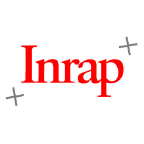
Inrap (French National Institute for Preventive Archaelogical Research)
Inrap was created in 2002 in application of the law on preventive archaeology. The Institute ensures the detection and study of archaeological remains concerned by construction projects in France and its overseas territories. It exploits and diffuses the results of its research to the scientific community and participates in teaching, cultural diffusion and public outreach.
Largely self-funded, Inrap is a research establishment in the public sector under the tutelage of the Ministries of Culture and Communication, National Education, Higher Education and Research. In addition to its State representatives, its Board of Directors is composed of representatives of research organisms and local governments, as well as developers and qualified persons in the field of archaeology.
Its research activity is conducted under the aegis of a scientific committee composed of the associated ministries and members of the archaeological community: CNRS, universities and the archaeology services of local government bodies.
During the different phases of archaeological research, Inrap shares the results of its work with the public. It develops diverse resources that are widely diffused via the organization of site visits, colloquia and exhibitions, publications, audiovisual documentaries, radio programs and digital tools. Each year since 2009, under the aegis of the Ministry of Culture and Communication, Inrap organizes the French National Archaeology Days.
Read more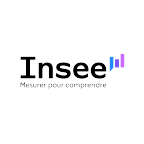
Insee
Established by the Finance Act on 27 April 1946, the National Institute of Statistics and Economic Studies (INSEE) has spent decades fulfilling a mission of general interest: collecting, producing, analysing and disseminating information on the French economy and society, in order to inform public debate and decision-making. As a directorate-general of the Ministry of Economy and Finance, INSEE carries out its activities in accordance with professional independence, as guaranteed by the Public Statistics Authority. INSEE coordinates the French public statistical system, which includes ministerial statistical services (SSM), and contributes actively to the European statistical system and the work of international organisations such as the UN, OECD and Eurostat.
With offices throughout France, INSEE deploys teams of experts to produce high-quality statistical data and information that is accessible to all, thereby participating in the development of a statistical culture within our society.
Read more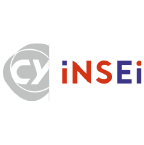
INSEI
Created by the 2005 law on equal rights and opportunities, participation and citizenship for people with disabilities, INSEI is a national public training and research institute dedicated to special educational needs, accessibility and inclusive education. Under the dual authority of the Ministry of National Education and Youth and the Ministry of Higher Education, Research and Innovation, INSEI contributes to the definition and implementation of policies relating to disability and severe educational difficulties. It supports the UNESCO Chair in Disability, Education and the Digital Age, which aims to create, develop and evaluate innovative digital resources to promote a more inclusive education and society in France and abroad.
Its mission is threefold:
- Training for all those involved in inclusion: INSEI offers training courses for professionals and individuals on accessibility and support issues.
- Conducting interdisciplinary research: the Grhapes research laboratory (EA 7287 – Groupe de recherche sur le handicap, l’accessibilité, les pratiques éducatives et scolaires) aims to involve the Institute in cutting-edge research in the field of schooling, education and training for people with special educational needs.
- Development of a reference resource centre: INSEI contributes to the information, publication and distribution of technical, scientific and educational resources for professionals in the field of educational, social and professional support and accessibility.
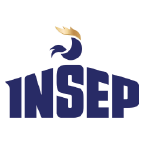
INSEP
France’s National Institute of Sport, Expertise, and Performance (INSEP) is a public institution under the administration of the Ministry for Sports. Established in 1945, it is both a benchmark elite Olympic and Paralympic training centre as well as a powerful voice in elite sport policy in France.
Through its unique, modern infrastructure located within an exceptional 28-hectare campus in the heart of the Bois de Vincennes in Paris, INSEP supports outstanding sporting performance in all its forms for elite athletes competing in all sports. The institute offers innovative support and individually tailored training programmes, medical care, research, psychological support as well as training and professional reorientation. Every day, athletes’ programmes are studied, remodelled and improved through the commitment, motivation and availability of all those working at INSEP. Each year, the institute reiterates its goal of optimising all areas to maximise the achievement of French athletes, enabling them to reach the top of the podium.
Read more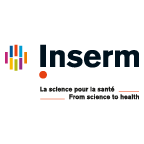
Inserm
Since 2006, a partnership between the CCSD and Inserm offers to transfer fulltext HAL deposits to the PubMed Central archive.
Founded in 1964, Inserm is a public scientific and technological institute which operates under the joint authority of the French Ministries of Health and Research. The institute is dedicated to biomedical research and human health, and is involved in the entire range of activities from the laboratory to the patient’s bedside. It also partners with the most prestigious research institutions in the world that are committed to scientific challenges and progress in these fields.
HAL portal
Open Science Policy
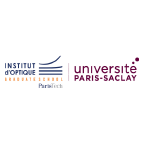
Institut d’Optique
Founded in 1917, the Institut d’Optique Graduate School is a world leader in higher education, research and innovation in optics and photonics.
The Institut trains physics engineers, master’s students and some of the most innovative PhDs in business and academia.
At the heart of networks of excellence, its international influence is based both on the quality of the training it provides and on its research and technology transfer.
The Institut is a major engineering school member of University Paris-Saclay and is established on the campuses of excellence of Paris-Saclay and Bordeaux, as well as Saint-Etienne.
The scientific contributions of its research center are major : the researchers publish on average one article per week and are quoted 30 times daily.
Read more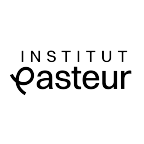
Institut Pasteur
It is home to several national (CNR) and international (CCOMS) centers of expertise that monitor infectious diseases. The Institut Pasteur Medical Center is a health center specialized in infectious and tropical diseases, travel medicine and allergic diseases.
The Education Center welcomes every year over 600 students (Master’s and PhD students, post-doctoral fellows, experienced researchers and health professionals). Some 250 PhD students are present in campus laboratories in any one year, making the Institut Pasteur a major stakeholder when it comes to training of young scientists through research.
HAL portal of the Institut Pasteur
HAL portal of the Pasteur Network
Open Science Policy
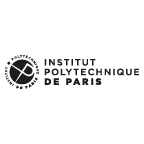
Institut Polytechnique de Paris
The Institut Polytechnique de Paris is a public higher education and research institution comprising five prestigious French engineering Schools: École Polytechnique, ENSTA Paris, ENSAE Paris, Télécom Paris and Télécom SudParis. Under the aegis of the Institute, they bring together two centuries of expertise to pursue two major goals: to develop world-class training programs and cutting edge research. Building on the strength of its five founding institutions, the Institut Polytechnique de Paris has established itself as a leading education and research institution in France and internationally. École Polytechnique, ENSTA Paris, ENSAE Paris, Télécom Paris and Télécom SudParis have contributed to major industrial and technological breakthroughs over the last two centuries. Their alumni include Nobel prize-winners and prominent figures in the worlds of politics, business and research.
The Institut Polytechnique de Paris develops multidisciplinary education and research programs drawing on a community of 1,000 faculty members in ten disciplinary departments. This multidisciplinary approach creates new synergies between different fields, for example by promoting the application of new technologies to traditional engineering fields such as physics or transportation. Knowledge transfer to the economy and society is at the heart of the Institut Polytechnique de Paris’ mission and its network of incubators and dynamic ecosystem helps drive cutting-edge innovation and cultivate students’ inventiveness.
Read more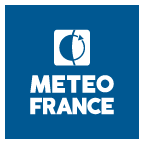
Météo-France
Météo-France is the French national meteorological and climatological service. Its prime mission is to ensure meteorological safety for people and goods. It translates into a weather monitoring map that signals dangerous phenomena, their consequences, and the precautions to protect oneself. Sea forecast and avalanche monitoring complete these measures in Continental France, and a hurricane watch alert system for the Overseas territories.
Météo-France’s main missions consist of:
- the development and maintenance of surveillance network,
- the collection and processing of climatological data,
- the weather forecast,
- the elaboration of climatic projection,
- the research in the fields of meteorology and climatology.
Météo-France is at the service of 3 categories of clients:
- State services (people and goods safety) and Defence,
- the aeronautic sector,
- professionals in a variety of economic sectors (energy, local authorities, construction industry…)
Among Météo-France strong points is the ability to cover every aspect, from operational to research, at any scale of time and space. The interaction between engineers and researchers is an important asset.
A reference on a global scale, Météo-France holds an important place among the main organisms of meteorological cooperation: the World Weather Organisation (WWO), the European Centre for Medium-Range Weather Forecasts (ECMWF), the European Organisation for the Exploitation of Meteorological Satellites (Eumetsat), and Eumetnet.
Météo-France is currently under the jurisdiction of the French Ministry of Ecological Transition.
Read more